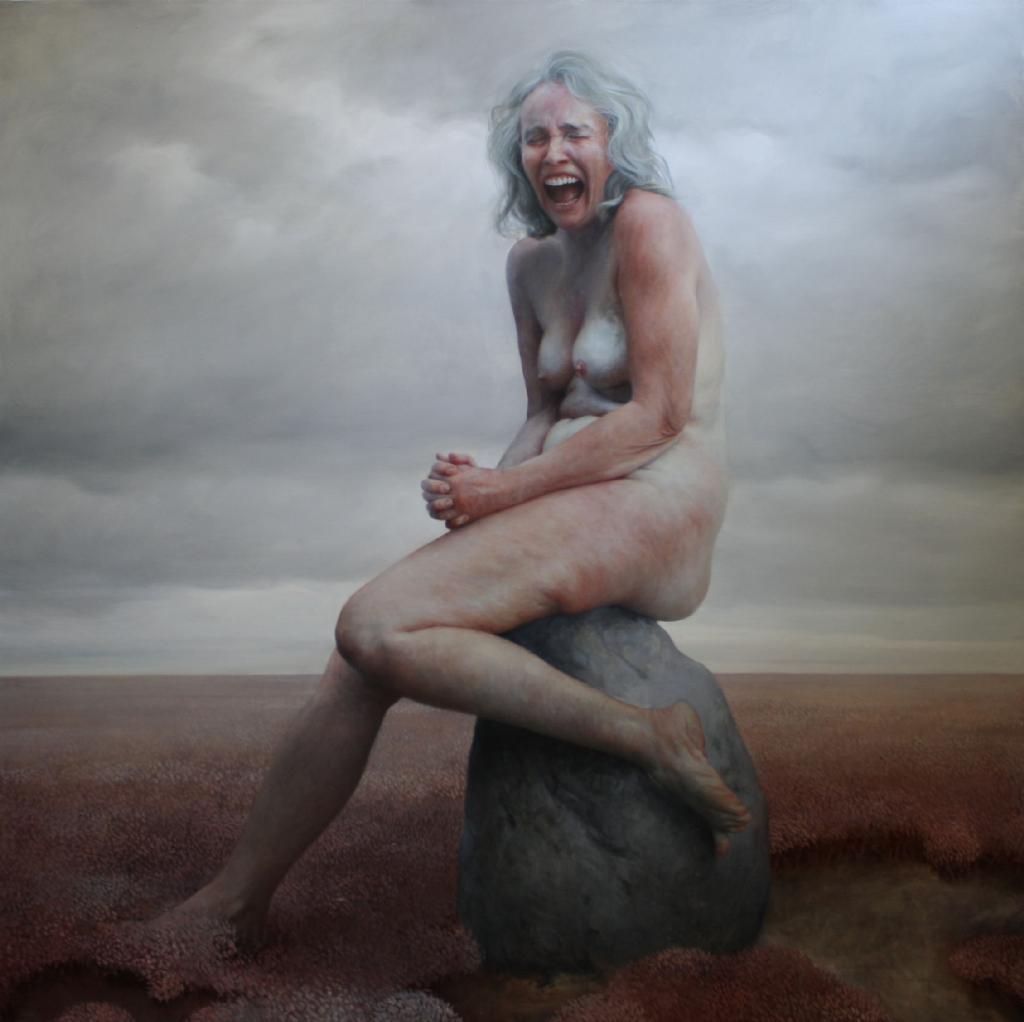 We were delighted to see our new purchase – The Tempest by Aleah Chapin – feature as a full page illustration in an article on the artist in The Sunday Times Style section on 26 January 2014.
We were delighted to see our new purchase – The Tempest by Aleah Chapin – feature as a full page illustration in an article on the artist in The Sunday Times Style section on 26 January 2014.
HAPPY: A GLORIOUS SERIES OF PAINTINGS CELEBRATES THE BEAUTY AND COMPANIONSHIP OF OLDER WOMEN.
SALLY BRAMPTON TALKS TO THE ARTIST ABOUT HER ‘AUNTIES’ PROJECT
When you first see the Aunties, as this series of paintings is called, your instant reaction is to laugh. They look so jolly and so splendid, a bunch of female friends having a good time. Except, of course, that they are naked. And old.
At first sight they are also shocking, but perhaps ironically, the shock of the new is the surprise of the old. We are simply not used to seeing age in all its wrinkled, sagging and mottled glory. Age is something we hide, mourn and regret The ideal is young, glossy and perfect, an image so universal that we have come to believe it’s what women really look hke. The only celebration of age is actually a paean to youth – “Look how fabulous Susan Sarandon looks. Isn’t Goldie Hawn amazing? Aren’t they marvellous? For their age.”
These paintings however, which are slightly larger than life-size, are warm, affectionate and funny The women’s laughter is infectious, they scarcely seem to notice their nakedness – or care. They are, in essence, family portraits
The artist Aleah Chapin is a petite, pretty, gently spoken 27-year-old who hails from a small town on a small island – Whidbey, near Seattle. Washington. And when she says small. she a not kidding. The island has a population of about 55,000, and the town is a close-knit community where the kids hang out together and the mothers look out for them. The women call themselves the Aunties, hence the title. When Chapin was born, there were 10 women crowded into her mother’s bedroom.
When Chapin arrived in New York, she found the art scene so cool and edgy, she struggled to find her voice. “Everything felt contrived, as if I was trying too hard. I knew 1 loved painting people and representational art, so I started painting from my own life.”
She won a place at the renowned New York Academy of Art, and in 2012, while still there, won the National Portrait Gallery’s BP Portrait award for her picture Auntie. She is one of the youngest artists to win the award, beating a field of more than 2,000. It was, she says, “kind of surreal”. She was so unconvinced her work would even be considered, she almost didn’t submit a painting. “Besides, the shipping from New York to London is really expensive.”
The paintings, she says, “are not about making a point Some of it was about exploring beauty and age, but that’s not why I painted them. These women are important to me. They are strong, wise and hilarious. I love them.” She was, she says, raised by such strong women that she tries not to let the idealisation of women in the images that daily bombard us affect her. “But it does I feel strongly that things should be real. I wanted to show a different way of seeing, and to get at something that is universally human. A woman’s body is a map of her journey through life.”
Of course, it helps that she is technically brilliant (and already has a string of exhibitions and awards to her name), but the huge international interest in her work took her by surprise. She thinks it may be because people are looking for something more authentic. “Not just in art, but in the food we eat and how we live our lives.”
Inevitably, there were some negative reactions about it being disgusting to sec naked old women. The usual vitriol was scattered among the comment threads on the internet following the announcement of the BP Portrait award. My particular favourite was from an indignant woman who said she was never going to look like those old hags because she looks after herself.
Obviously she is not on intimate terms with Mother Nature and her sometimes merciless bounty.
Denial and fear are the norm when confronting the spectre of old age, perhaps because we rarely come face to face with any happy expression of it. It is hidden and forbidden, so how great that this young woman’s warm gaze pushes open the door a little. ^

